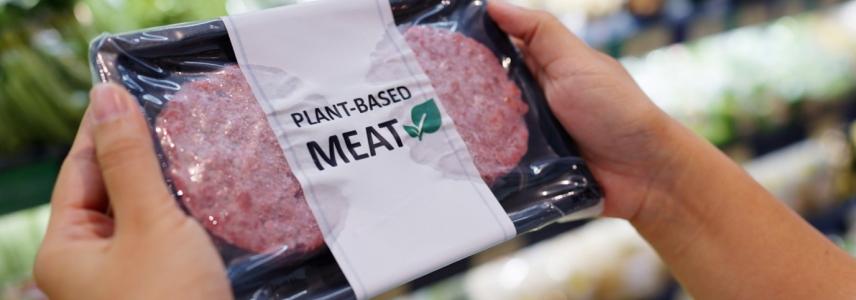Opportunities for natural food additives in plant-based foods

Consumers worry about the planet's state more and more often. So, they choose plant-based alternatives over animal products because they feel these are better for the planet and their health. The shift to a certain quality of plant-based alternatives can be challenging for food and drink manufacturers. Are natural food additives a solution?
How to improve the taste and texture of plant-based food and drinks
New plant-based foods are often unique and do not resemble meat, fish or dairy products. But still, most product developers focus on creating plant-based foods that look and taste like meat products, such as hamburgers. Companies that can help plant-based food manufacturers to find flavour and texture solutions have plenty of opportunities for their services and products.
Meat alternatives consumers search for a specific taste. For food scientists, developing plant-based alternatives with a similar texture and flavour as real meat or dairy is a huge challenge. Many companies are researching solutions, such as the following:
- Seaweed extract thickeners: These help to improve the texture of plant-based meat alternatives. Seaweed extracts can help bind the vegetable protein and water. Thickeners can also help to slow down moisture loss during cooking.
- Carrageenan; This is an extract from red edible seaweed. This extract stabilises and emulsifies the ingredients in plant-based milk, such as almond milk.
- Natural flavourings: Companies sometimes use natural flavourings to improve the taste of drinks.
Clean labels for plant-based foods
Plant-based food consumers are often interested in clean labels. A clean food label means that the product:
- is natural;
- is minimally processed;
- is preservative-free; and
- has a transparent and short list of ingredients.
These consumers want products with natural ingredients only. That includes natural food additives that support texture, colour and flavour. They avoid certain products because they associate E numbers with artificial ingredients or do not recognise an ingredient.
For example, agar is a water-based extract from several seaweeds. This extract is lesser known by many consumers, so they might not understand what this ingredient is on a label.
Another example is Cargill's gracilaria seaweed powder for dairy products. Cargill is a natural food additive supplier that develops additives for plant-based foods with clean labels. So, there are ways for manufacturers to add natural, recognisable ingredients to their product labels instead of E numbers.
Natural food additives for plant-based foods with clean labels
Natural food additives exporters must consider their ingredients' suitability for clean-label plant-based foods. The following examples can help:
- You can change your processing technology; and
- You can advise manufacturers on what ingredient names they can best use on their labels.
These ingredients are often suitable for clean-label plant-based foods:
- Many gums;
- Essential oils; and
- Colouring foodstuffs.
But the following ingredients sometimes are not:
- Many plant extracts, including seaweed extracts; and
- Isolated chemical substances.
Learn more
For more information, read our market information on exporting natural food additives to Europe, including de following studies:
- What requirements must natural food additives meet for the European markets;
- Exporting Seaweed extracts (including carrageenan and agar agar) to Europe; and
- Exporting Gum Arabic and Guar Gum to Europe
Kasper Kerver from ProFound – Advisers in Development wrote this news article for CBI.
Stay informed
To stay informed on the latest developments in the natural food additives sector, subscribe to our newsletter.